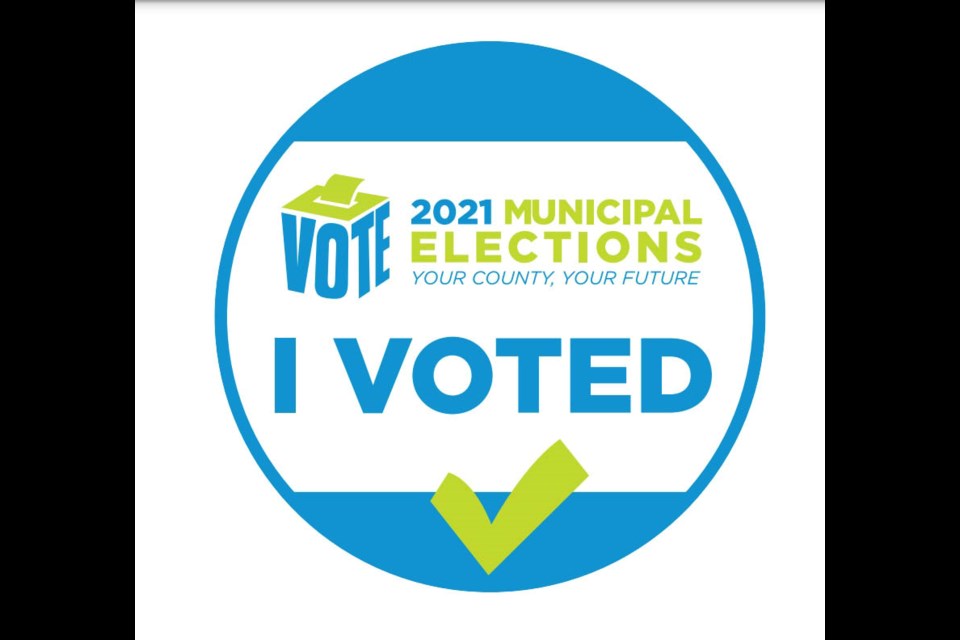At their meeting last Tuesday, Lac La Biche County councillors got an official debrief on the event that got them into their elected seats. The 2021 municipal election in Lac La Biche County this fall had a 56 per cent voter turnout rate, which is significantly higher than other municipalities, said Melanie McConnell, the county’s associate Chief Administrative Officer of Corporate Services, and the Chief Returning Officer at the latest elections.
With more than half a dozen elections in her work history, McConnell told council the recent one was one of the most challenging. Explaining that the county's corporate services department requested additional bylaw changes to the Local Authorities Election Act (LAEA) to accommodate additional election services, advanced voting and COVID precautions at all voting facilities. This year’s municipal election also included provincial senate elections, a two-questions referendum and the first-time rental of automated ballot counting machines, she said.
The good news, she said, was the extra and unique workload created a sharp and effective education process for future events.
“From my perspective—as a returning officer—I'm happy to say that those changes were all largely very successful. For future elections—provided there are no substantial legislative changes—I would recommend a continuation of many of them.”
The election service costs went over budget by $9,000—a total cost of $75,000—this year in order to provide health and safety supplies, facility costs and accommodate the additional provincial referendum and senate ballots this year. Fortunately, the provincial government provided a $30,000 grant to support the additional ballots, she said.
Election services
This year’s use of tabulating machines to quickly count each question in the 4,430 ballots cast, came with a rental price tag of $20,000 — a cost that might not be the best course of action moving forward.
“I think for this election it made a lot of sense, there were a lot of ballots, a lot of votes to be counted. However, for future elections, I think something we would have to consider is the pros of having those very fast voting results versus the cost—you’re looking at $20,000.”
While some costs might not be necessary or fiscally responsible, she said, the resources allocated to extending voting and polling opportunities, accommodated residents with 15 extra hours for advanced ballots and an hour extension on election night.
“Administration supports budgeting for the continuation of additional advance voting opportunities, providing more than one day of advance voting…although there are additional costs, these costs are marginal and promote greater access to voting.”
Broader election services supported Beaver Lake Cree Nation and Heart Lake First Nation communities for the first time this year, she said, while the county’s qualified polling staff and increased election promotion supported the voters throughout all the busy stations in the county on election night and throughout advanced voting.
“Administration had received positive feedback from electors ... throughout the various voting opportunities,” she said.
However, hiring additional staff, McConnell said, is recommended in the future to allow the county employees that fulfilled the election duties to not only focus on their duties outside of the election season but to provide enough staff coverage.
“The workload on the staff, being that an election is another thing that we do in addition to everything else that gets done. Those other things don’t stop—I’m talking about appeals, FOIP requests, council meetings, etc…I would recommend for the future budget—for elections—that we would hire seasonal position.”
Future amendments
Overall, the process was quite successful, she said, explaining that even with restrictions on gatherings and the absence of some public spaces normally used for polling stations, anyone who wanted to vote was able to.
McConnell says her department will continue to follow up on changes and revisions to the local elections procedures leading up to the next municipal election in 2025.
“Prior to the 2025 election, administration will evaluate any legislative changes and bring forward the necessary bylaws to enact optional provisions.”



